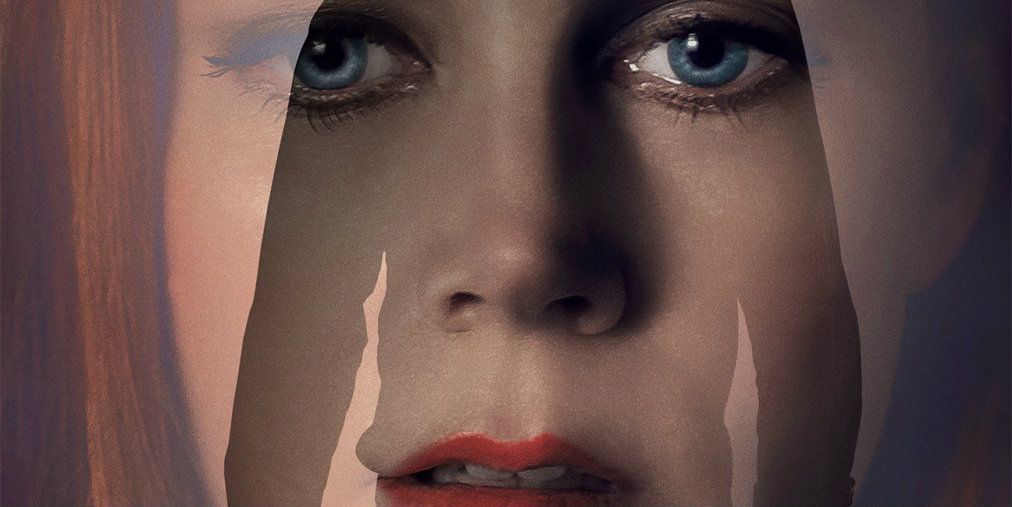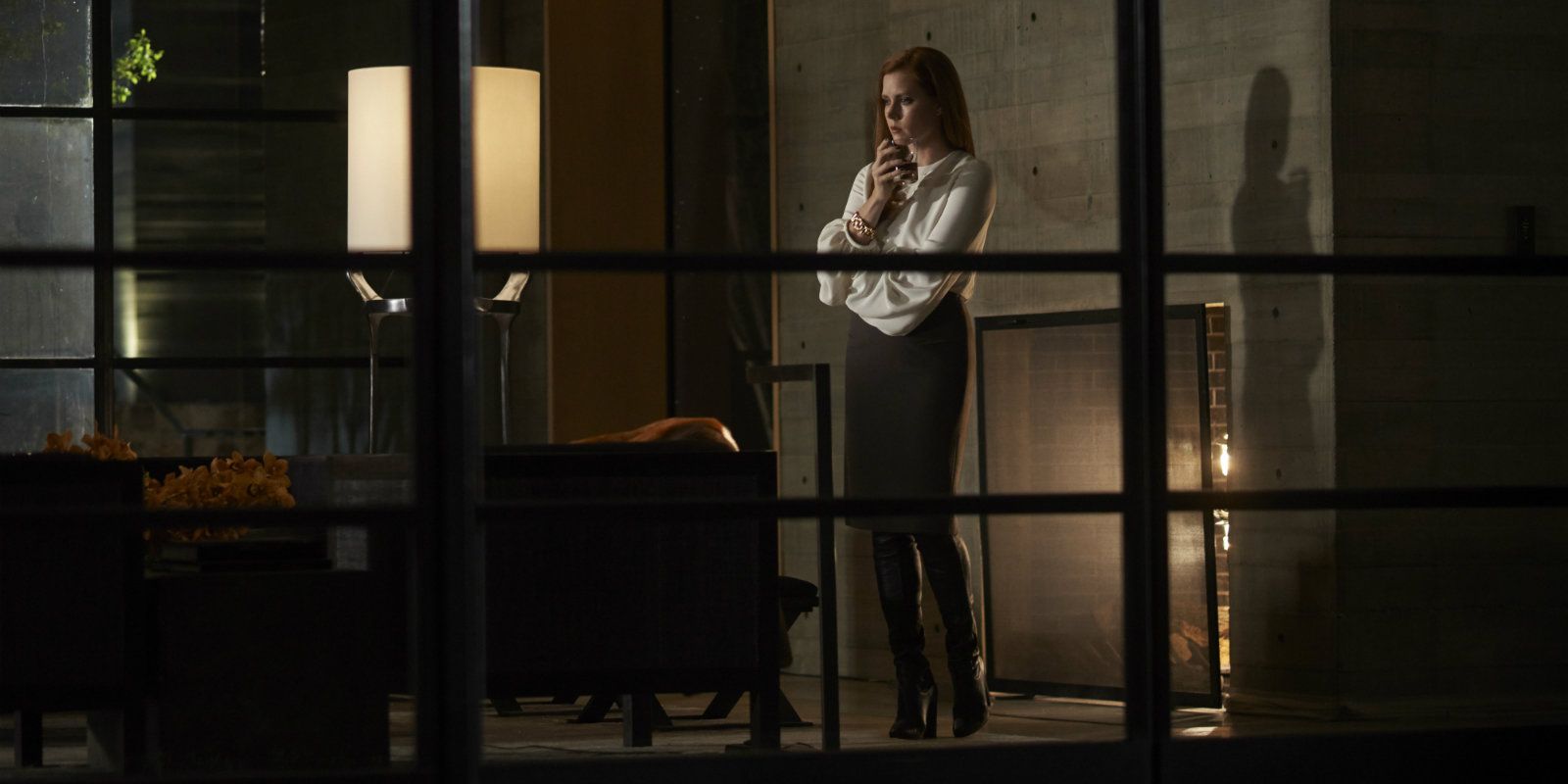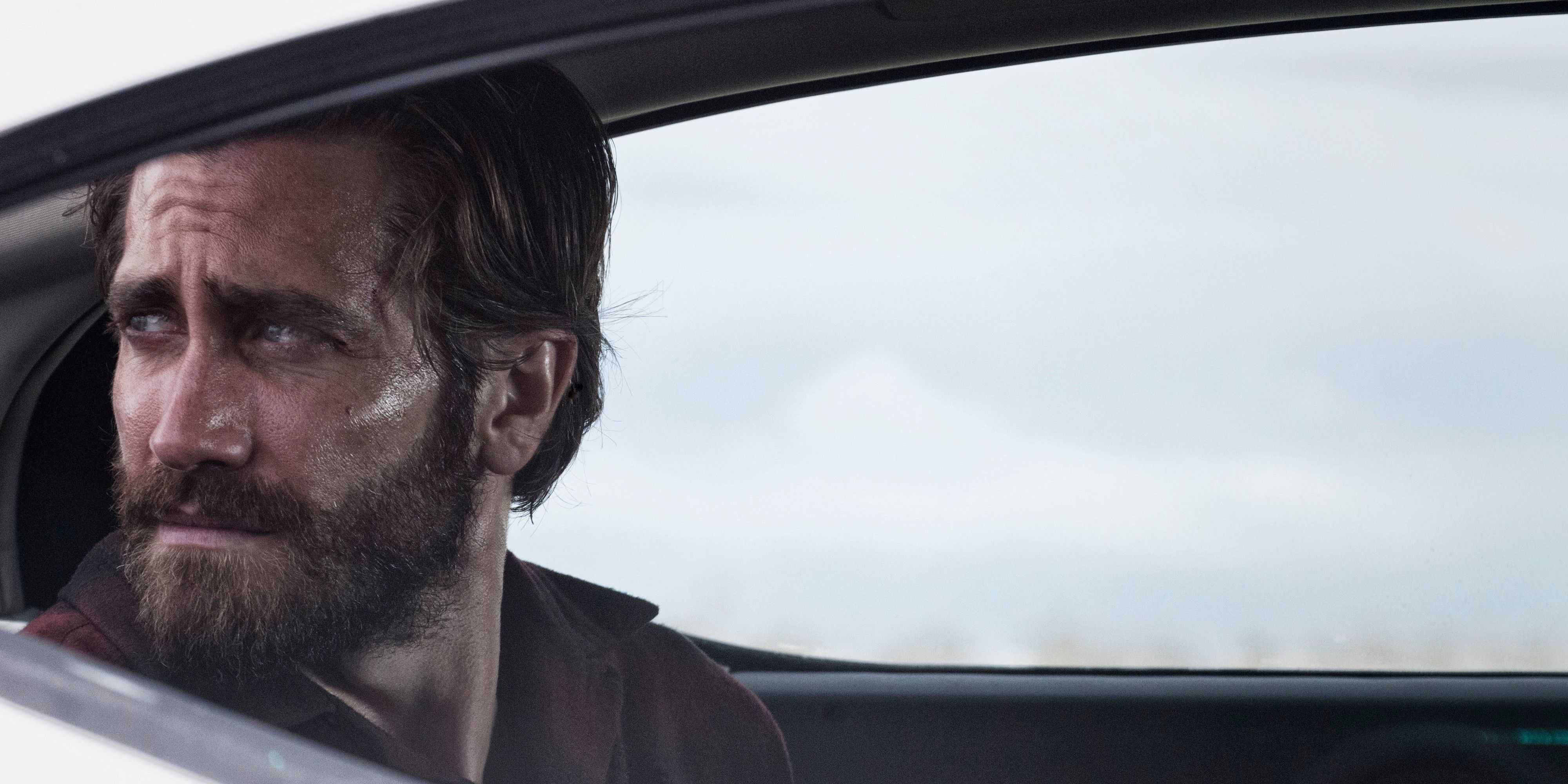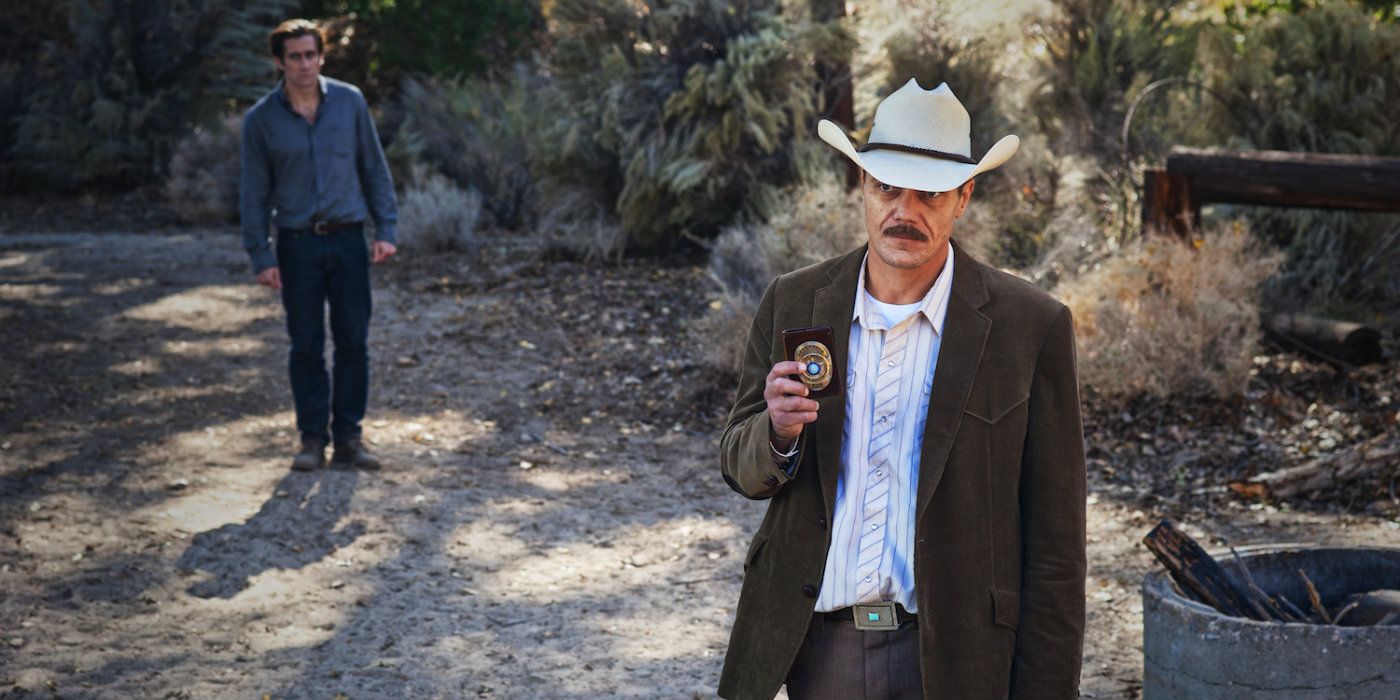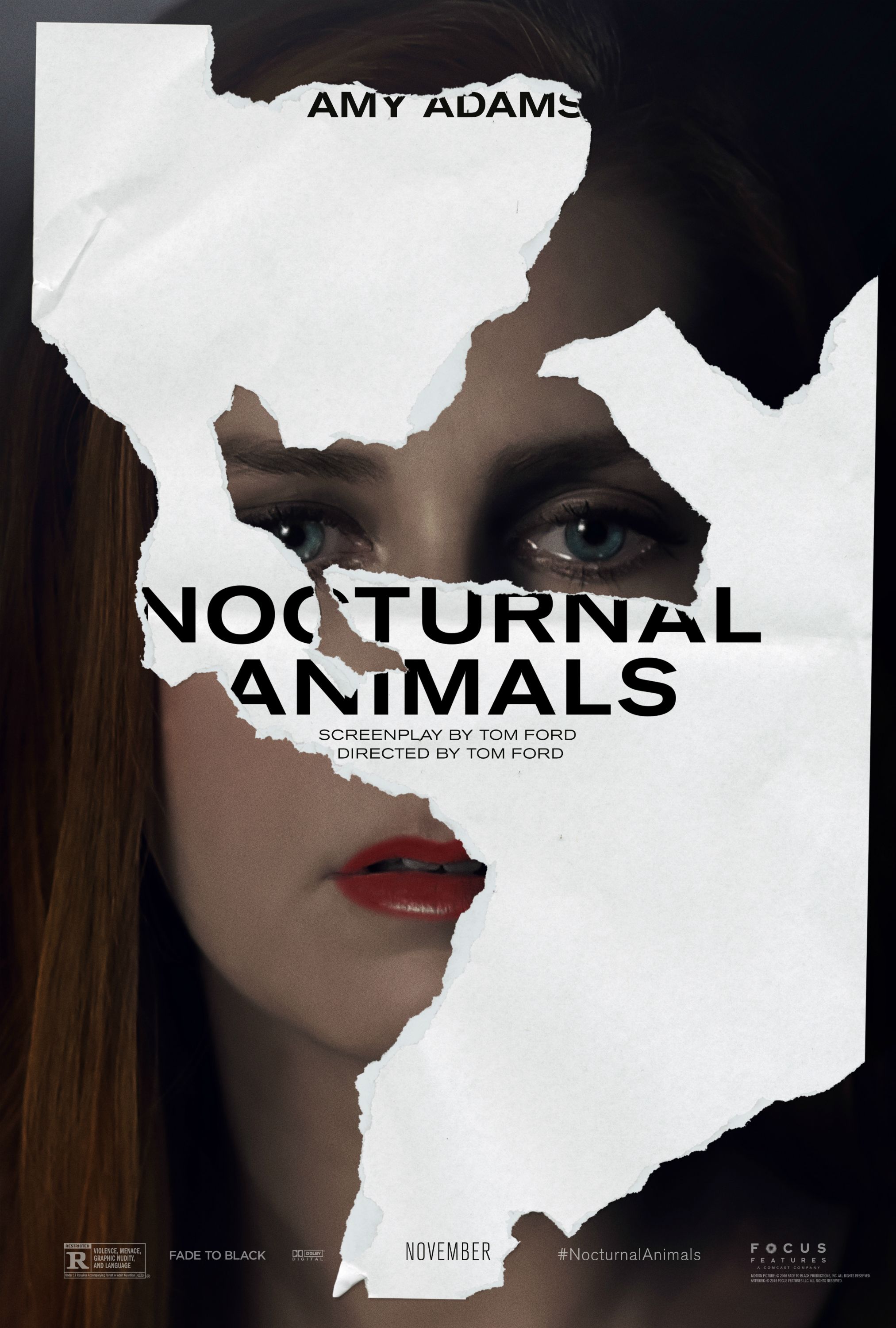Nocturnal Animals has style and ambition to spare, yet as a whole Tom Ford's dark psychological thriller rings hollow.
Wealthy Los Angeles art gallery owner Susan Morrow (Amy Adams) is taken aback when, one day, she receives the manuscript for a not-yet-published novel by Edward Sheffield (Jake Gyllenhaal) - Susan's ex-husband, whom she has barely spoken to since they were divorced some twenty years ago. The book is titled "Nocturnal Animals" and tells the story of Tony Hastings (also played by Gyllenhaal), an average man who is traveling through Texas with his wife (Isla Fisher) and daughter (Ellie Bamber) when they cross paths with a trio of threatening locals, led by a fellow named Ray Marcus (Aaron Taylor-Johnson).
As Susan is pulled into the violent and disturbing story of "Nocturnal Animals", she begins flashing back to her real-world relationship with Edward - and how it came to a troubling end of its own. This in turn inspires Susan to examine her own life choices since then, including her marriage to the wealthy businessman Hutton Murrow (Armie Hammer)... and to consider if Edward has a different (and darker) purpose for writing his book than he is letting on.
Fashion designer-turned filmmaker Tom Ford made his directorial debut in 2009 with the Oscar-nominated A Single Man and has now returned with his sophomore effort as director, in Nocturnal Animals. A psychological thriller based on Austin Wright's 1993 novel Tony and Susan, Ford's new movie is the typical second effort for a breakout filmmaker; compared to the director's first film, it's more thematically ambitious, more stylized in construction and features more A-listers and/or name cast members, even in minor supporting roles. The resulting movie here is certainly intriguing and weird, but Nocturnal Animals is only partly successful in its goals.
Written for the big screen by Ford, Nocturnal Animals plays out as two movies woven together: the story within the story (e.g. the Nocturnal Animals novel itself) is a pulpy neo-western/revenge tale, whereas the real-world scenes and flashbacks involving Susan generally play out as a bleak satire of the LA upper-class and the highbrow art scene. Ford and cinematographer Seamus McGarvey (Atonement director Joe Wright's frequent collaborator) effectively distinguish these plot threads visually; the fictional book storyline has a fittingly rustic aesthetic and setting, whereas the real-world scenes are painted with a cold, dark and unfeeling color palette. Nocturnal Animals benefits from Ford's background in fashion in this respect too, as the film boasts lovely costumes and striking set interiors that befit the respective genre conventions of its dual narrative threads.
Where Nocturnal Animals runs into trouble is with its varying tones. Edward's book is presented as being a revenge fantasy of sorts inspired by the fallout from his relationship with Susan, but his story itself is a self-parody riddled with plot cliches and half-baked characters - and the movie doesn't make it clear if that's intentional or not (read: whether or not it's offering commentary about men acting out through their art). The real-world scenes are similarly uneven, in the way that they awkwardly blend sincere moments of drama with ham-fisted melodrama and overt satire. Nocturnal Animals juxtaposes similar imagery and situations in these two storylines so as to further draw parallels between them, but the technique is heavy-handed and make its all the more difficult to tell if Ford's movie is itself meant to be a high-minded exercise in arthouse filmmaking - or a parody of one.
Amy Adams and Jake Gyllenhaal, for their own parts, plays their roles in Nocturnal Animals - as, respectively, a more sympathetic version of an Alfred Hitchock-style femme fatale in Susan and Edward/Tony, both of whom are decent yet hapless in different ways - with a straight face and the dedication that moviegoers have come to express from the two Oscar-nominees. Nocturnal Animals aims to explore the idea that Susan and Edward are, in their own ways, trapped in narratives with pre-determined endings much like the fictional Tony is. It's an interesting concept that, for those reasons mentioned before, doesn't hit home emotionally the way that the film intends.
Michael Shannon and Aaron Taylor-Johnson deliver the most colorful and enjoyably offbeat performances in Nocturnal Animals as, in turn, gruff Texan Detective Bobby Andes and unrepentantly vile Ray Marcus during the film's novel storyline. The rest of the cast is populated by recognizable faces, many of whom only show up for a scene or two as eccentric (some of them more memorable than others) supporting players in the world of Nocturnal Animals; among them, Armie Hammer (The Man from U.N.C.L.E.), Isla Fisher (Now You See Me) and Michael Sheen (Masters of Sex), in addition to Laura Linney (Sully), Andrea Riseborough (Birdman), Jena Malone (The Neon Demon) and Ellie Bamber (Pride and Prejudice and Zombies).
Nocturnal Animals has style and ambition to spare, yet as a whole Tom Ford's dark psychological thriller rings hollow. The film is slick in construction and features memorably strange performances from a number of established character actors, but at times it's also silly and borderline pretentious in ways that are not intended. Flawed it may be, Nocturnal Animals is certainly a unique beast itself and should continue to prompt discussion/debates among film buffs, regarding its strengths and shortcomings alike. Those who are interested in joining the conversation should give the film a look - and hope that they won't have to wait another seven years for Ford to direct his next movie.
TRAILER
Nocturnal Animals is now playing in a limited U.S. theatrical release. It is 116 minutes long and is Rated R for violence, menace, graphic nudity, and language.
Let us know what you thought of the film in the comments section!

